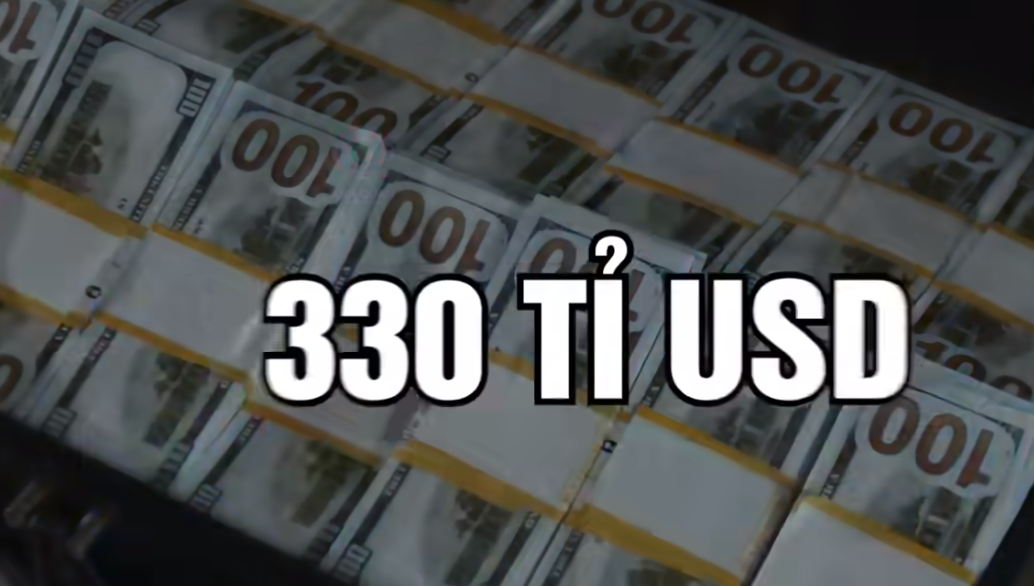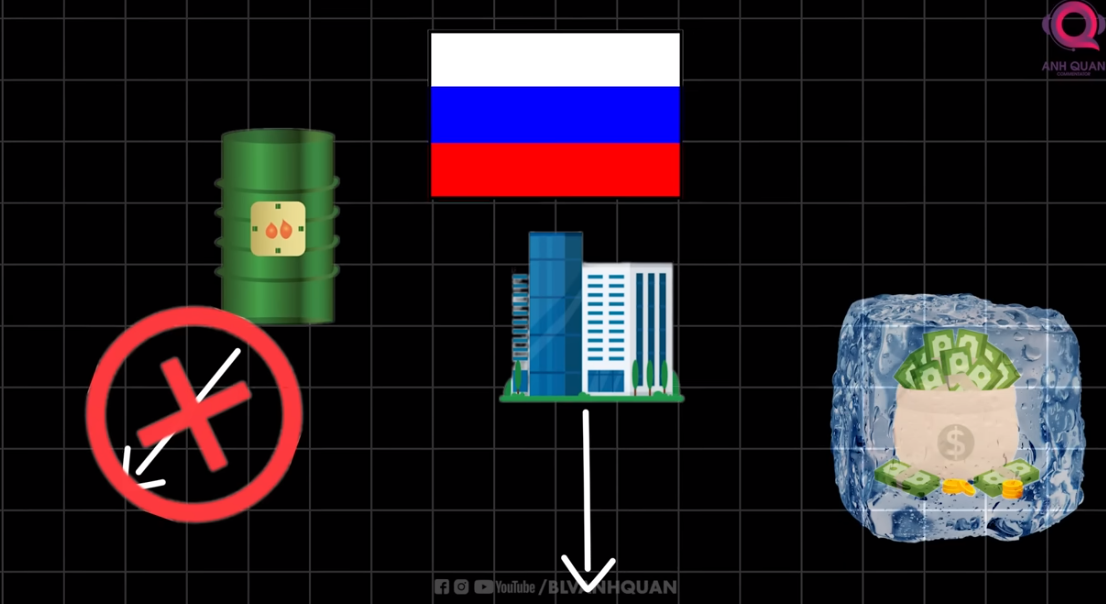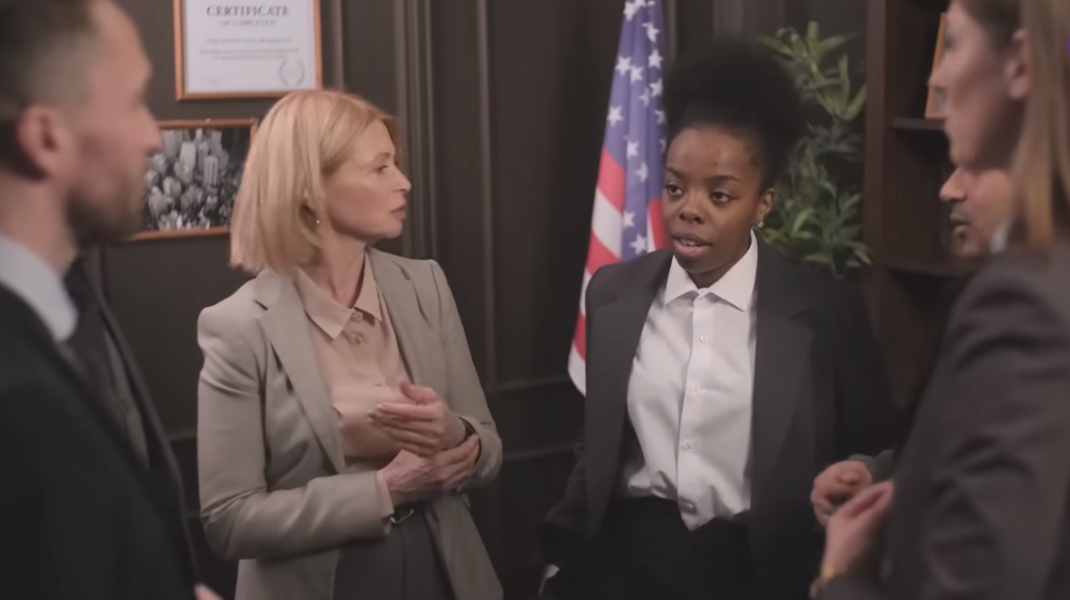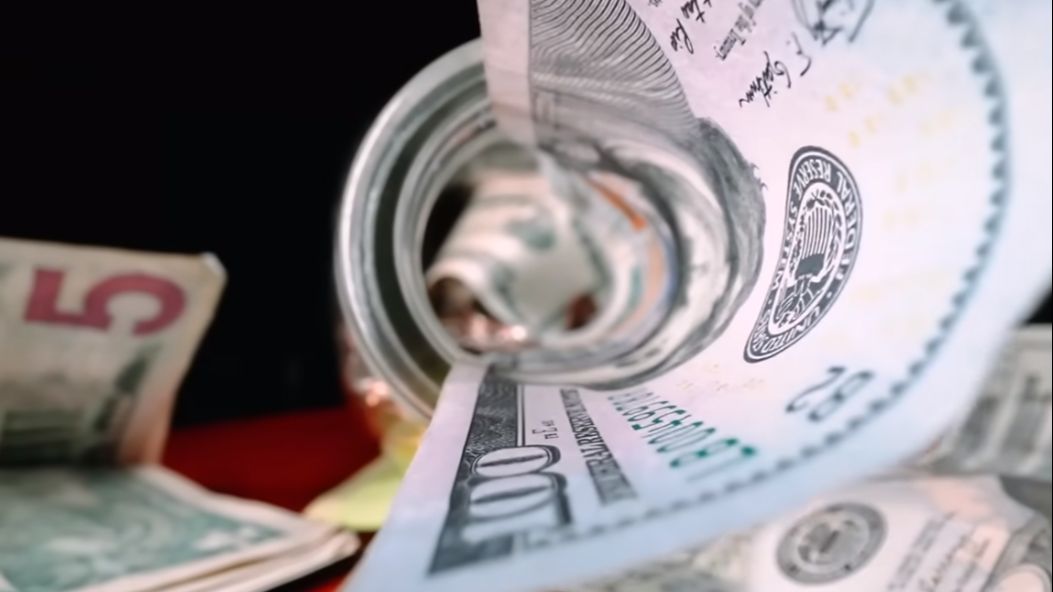The Russia-Ukraine conflict has been going on for over 2 years and is currently in a deadlock without a way out. To sustain any military conflict, the most important issue lies in money. The West naturally does not want Ukraine to fail, so they are forced to actively support this country to confront the immense power and abundant resources of Moscow. However, there is still another option to provide additional financial resources for Ukraine, which is to use the frozen assets of Russia in European credit institutions amounting to 330 billion USD. This is a great financial source to supplement Ukraine in the face of the failing situation on the battlefield. However, how to use them is still a subject of much debate among Western leaders.
So where will this 330 billion USD go?

As we know, before initiating any war, whether military or economic, the United States' trump card has always been sanctions. Thanks to the bolstered allied forces from the West to the East, they can create a siege to isolate and suffocate the livelihoods of countries or organizations in opposition before taking military actions to end them. Therefore, it is not surprising that Russian President Vladimir Putin declared a special military campaign against Ukraine in February 2022.
Western countries immediately imposed various severe forms of sanctions on Moscow, including banning the import of Russian oil, withdrawing all companies and enterprises from this country, and freezing the assets of individuals and organizations affiliated with the Russian Federation in Western financial institutions. These include assets of the Russian state, accounts of oligarchs from the land of the White Sun, and the country's foreign exchange reserves. Over 300 billion USD of Russia's foreign exchange reserves have been blocked by Western countries since March 2022. The European Union is seeking to legalize the exploitation of profits from these blocked funds, but Moscow warns that any such actions would constitute theft.

Russian officials have repeatedly stated that Western countries seizing the assets of the Russian state and individuals goes against all principles of a free market. Finance Minister Anton Siluanov has warned of a completely proportionate response, noting that Moscow has enough assets in Category C accounts, specialized bank accounts denominated in rubles. Some of these include obligations to pay dividend reserves to partners from unfriendly countries. Minister Siluanov further stated that all these assets are blocked in significant amounts, and the money obtained from using them is substantial.
Kremlin spokesperson Dmitry Peskov also agrees with the head of the Russian Finance Ministry. Peskov declared that Russia will challenge any seizure of assets in court. The Kremlin spokesperson emphasized that Western countries seizing Russian assets would be illegal and extremely dangerous, not only for the global financial system but also for the world economy. Peskov also added that any such actions would constitute theft. If something is seized from us, we will consider what we can seize from them. We will do that immediately, the Kremlin spokesperson warned.
According to official estimates, the Central Bank of Russia's foreign exchange reserves decreased by 8.4% in 2022 after their assets were blocked by G7, EU, and Australia. Notably, 210 billion euros of Russia's reserves are believed to be in the EU. It is believed that 191 billion euros are in Belgium, 19 billion euros in France, and 7.8 billion euros in Switzerland. The United States, a non-EU member, is said to have blocked around 5 billion US dollars of Russia's state assets. The EU aims to mobilize 15 billion euros for Ukraine from the funds obtained from Russia's blocked assets, depending on the unanimous approval of all member countries. In July, Euroclear, a clearing and settlement institution based in Belgium overseeing Russia's foreign exchange reserves, revealed that out of the 2.28 billion euros earned in the first half of 2023, they had accumulated over 1.7 billion euros in profits from Russia's frozen assets.
It is estimated that Euroclear holds assets worth 196.6 billion euros of Russia, most of which belong to the Central Bank of Russia. In addition, about 5 million private investors in Russia have seen their assets frozen in the accounts of international financial institutions, with the value of securities frozen in the investment portfolios of private investors amounting to 3.4 billion US dollars. As of July last year, Europe had planned to seize Russia's frozen assets and find a legal way to use that money to support Ukraine, but disagreements still exist among the parties.
Recently, at a meeting of G7 finance ministers, US Treasury Secretary Janet Yellen stated that finding ways to profit from the 300 billion dollars of Russia's frozen assets is legally, economically, and ethically appropriate. Yellen said the West could seize or use them as collateral. She added that Ukraine urgently needs support as the conflict enters its third year. Yellen's viewpoint was also supported by Canada; however, in a subsequent meeting, French Finance Minister Bruno Le Maire rejected this view. He stated that France does not see enough international legal basis to do so, and G7 needs further consideration. The French Finance Minister said similar actions need to comply with international law and the support of G20 members, including Russia, China, and countries not allied with the United States.
However, he also believed that the European Union's proposal to use the profits generated from the aforementioned assets would be a significant step forward. German Finance Minister Christian Lindner also believed that this would be a practical and legal step that could be implemented quickly. We are discussing to achieve a common goal while still complying with international law. Japanese Deputy Finance Minister Masato Kanda shared with the press after the meeting. Kanda also believed that using the profits generated from Russia's assets could be approved by G7 and the international community. Canada agrees that seizing Russia's assets needs to be expedited to help Ukraine, and Russia threatens retaliation if the West continues with this intention.
In a recent development, Germany has become one of the staunchest opponents of the US-led efforts to seize over 330 billion dollars of Russia's Central Bank assets frozen in the West. Berlin is concerned that such efforts to seize frozen assets could create a currency that could encourage other countries to follow suit and go against Germany, given what happened in World War II. Germany only supports using the profits from the frozen assets to transfer to Ukraine. Germany has had to pay enormous reparations since the end of the bloody World War II, not only to the victorious countries but also to countries that were once occupied. Since 1952, Germany has paid over 90 billion dollars for war reparations to allied forces and the Soviet Union. Berlin had to pay compensation for the Holocaust survivors and their families through Jewish organizations.

Recent compensation demands continue to emerge, with Poland, a country invaded and occupied by Nazi Germany during World War II, demanding 1.3 trillion dollars in compensation from Germany since 2022. Meanwhile, Greece has been demanding over 300 billion dollars since 2019. Italian courts in recent years have ruled to compensate the families of victims during the occupation, with some even attempting to seize German assets, including real estate in Italy owned by schools, historical cultural organizations, and archaeological institutions of Germany. Berlin has filed a lawsuit in international courts and is awaiting a decision. Berlin argues that international law prohibits individuals from making claims against countries in international courts, and state assets cannot be seized. German officials further stated that violating this principle in the case of Russia would weaken Germany's long-term legal position.
A former ally of Germany during World War II, Japan, also opposes the division of Russia's assets. This country has faced many compensation demands from neighboring countries for past atrocities. Meanwhile, France, Italy, and the European Central Bank are hesitant, fearing that seizing Russian assets could affect international trust in the Euro and the assets of the region using the common currency. The United States, the leading Western country, has recently enacted a law allowing Washington to seize Russia's assets under US jurisdiction, as the country currently holds 5 to 6 billion dollars of Moscow's assets.
To resolve some of these conflicts, Berlin proposes to keep Russia's frozen assets intact as a condition in peace negotiations, forcing Moscow to cede some controlled territories to Kiev. In response to Western information, Russia declared that it would not yield to anything. Russian Foreign Ministry spokesperson Maria Zakharova stated that Moscow rejects the possibility of exchanging controlled territories for seized assets. She said, "Assets cannot be used to exchange for territories; we will not sell our homeland, and Russia's assets are also inviolable. If not, the theft actions of the West will face fierce reactions, and many Westerners have realized this." Therefore, swallowing the entire 300 billion dollars frozen by Russia is not easy. Russia is playing all-in as the Ukraine conflict has severed almost all political and economic relations with the West.
This lady stated, "Assets cannot be used to exchange territory, we do not sell our homeland and Russia's assets are also inviolable. If not, the Western theft behavior will provoke strong reactions, many Westerners have realized this." So swallowing the entire frozen $300 billion of Russia is not easy. Russia is determined to play all-in as the Ukraine Conflict has severed most of its political and economic relations with the West.
